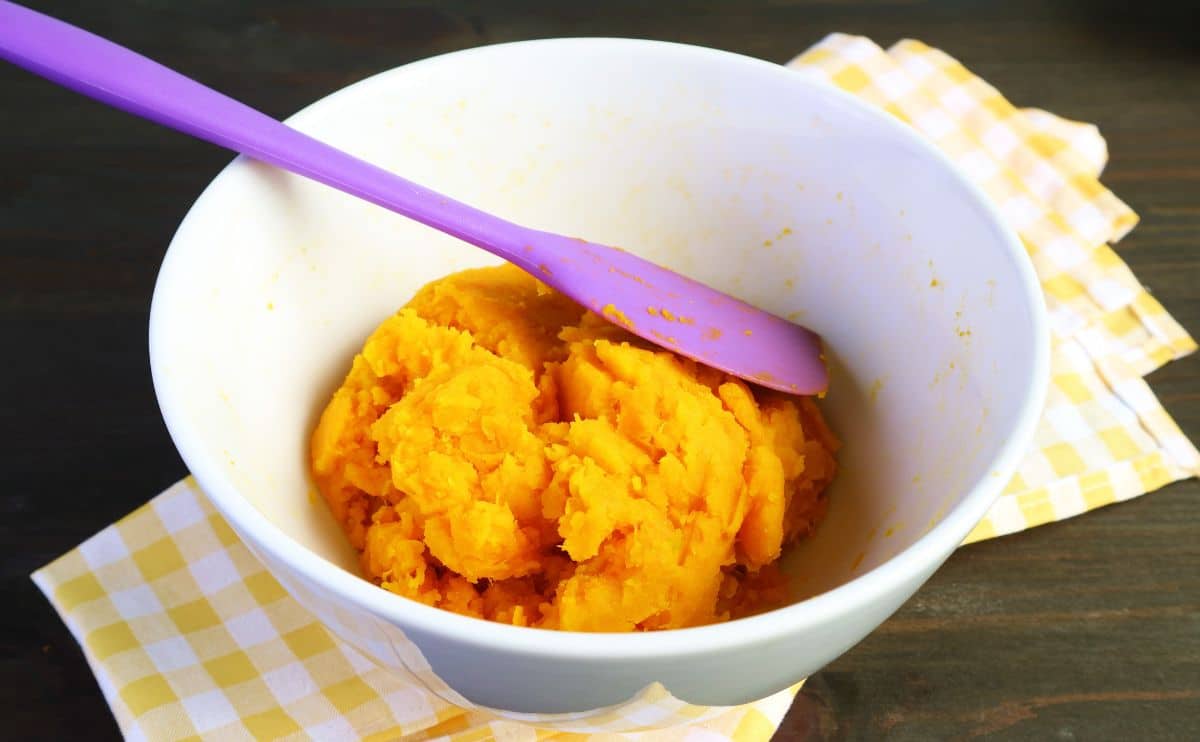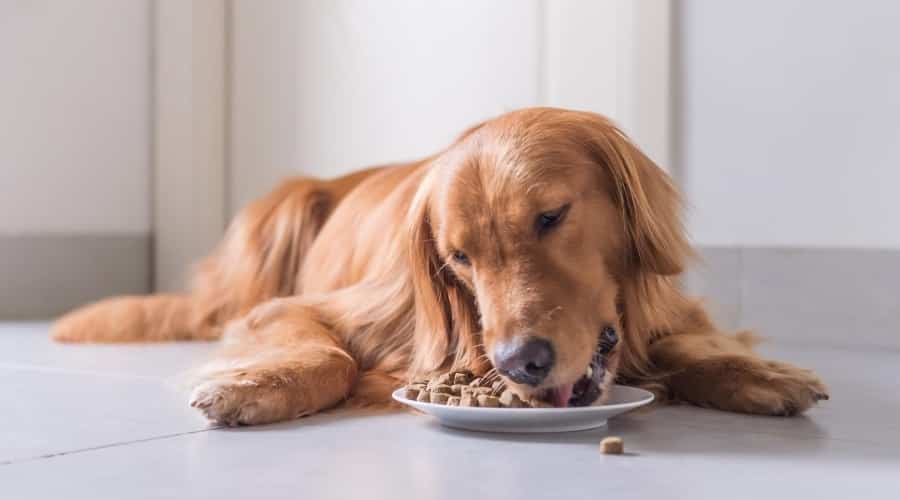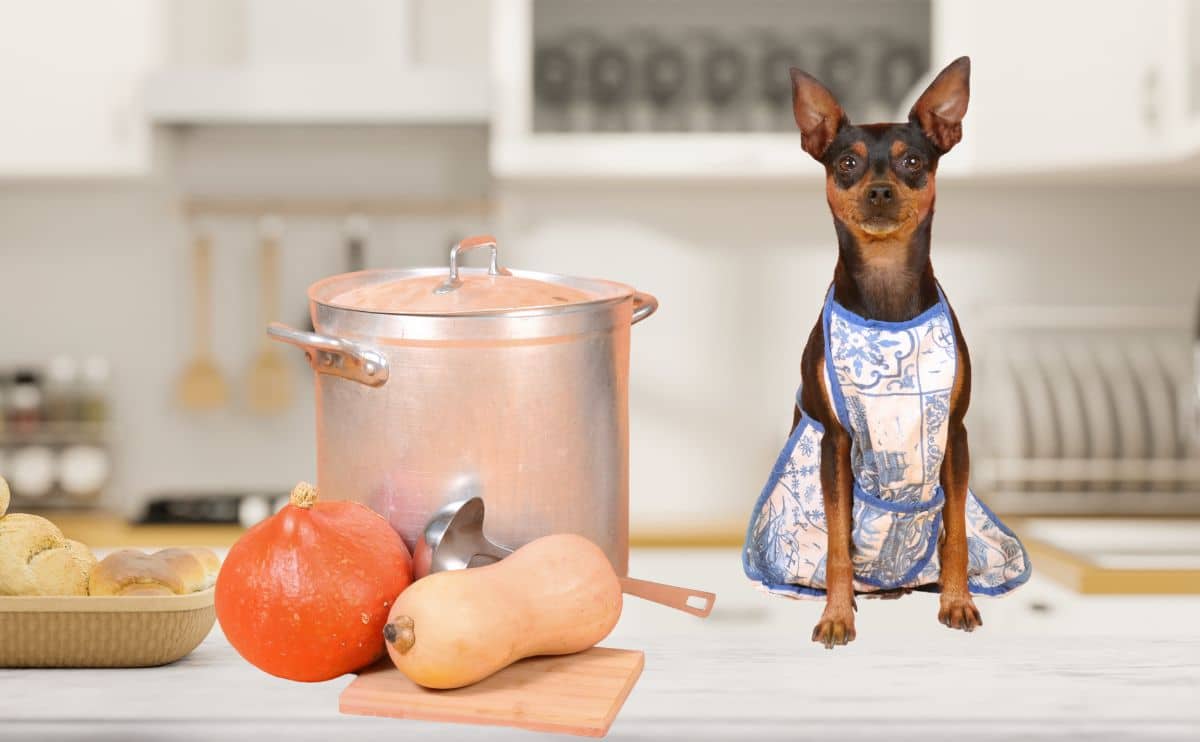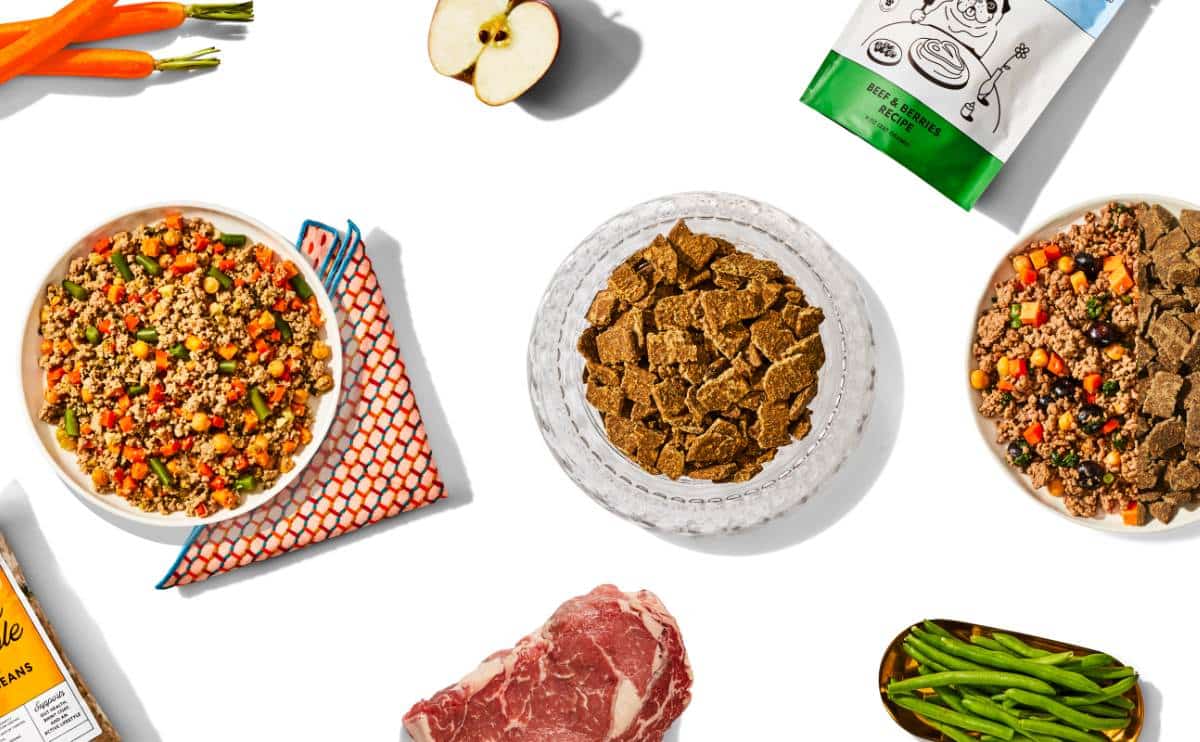Can Dogs Eat Peanuts? When Are Peanuts Bad For Dogs?
When you purchase through links on our site, we may earn a commission. Here’s how it works.

We’re all tempted to share our favorite snacks with our furry friends, so you may wonder if you can toss your pup a few peanuts. Are peanuts safe for dogs? As with most things canine-related, there’s no simple yes or no answer to this question. Many dogs can eat plain peanuts in moderation, but you should be aware of some important health concerns and types of peanuts that aren’t safe for dogs.
Table of Contents
Are Peanuts Safe For Dogs?
Yes, peanuts are non-toxic and generally safe for dogs. Peanuts are rich in protein, vitamins E and B-6, niacin, and potassium and can be an occasional nutritious snack. However, make sure you’re feeding your pup unsalted and dry-roasted peanuts or raw peanuts with the shell removed. Also, keep in mind that moderation is key with any snacks, treats, or additional food.
“I regularly come across dogs who are overweight, and often the underlying reason is that they eat too many treats in addition to their dog food,” says Dr. Hannah Godfrey, BVetMed, MRCVS, a small animal veterinarian in Cardiff, Wales. “It’s easy to get carried away when giving your dog treats, especially if you’re training them, but to avoid becoming overweight or unhealthy, treats should be no more than 10% of a dog’s daily food intake.”
Another concern with overfeeding peanuts is that they’re high in fat, so they can cause digestive problems, significant weight gain, or even pancreatitis if given too frequently or in large amounts. It’s best to stick to a few peanuts once every three or four days at most. But before you give your dog peanuts (or any new human food), it’s a good idea to check with your veterinarian first because peanuts aren’t healthy for some dogs.
When Are Peanuts Bad For Dogs?
Peanuts aren’t a good treat option for overweight or obese dogs and dogs with diabetes or chronic pancreatitis. Although rare, some dogs can be allergic or have a food intolerance to peanuts. There are also several commercial peanut variations that you’ll need to avoid because they can pose health hazards for your canine companion.
Salted Peanuts
While our four-legged friends require some salt in their diet, too much salt can cause dehydration and even lead to salt toxicity. Most dog food contains all the salt dogs need in their daily diet, so veterinarians recommend avoiding giving your pup salty human foods. Don’t worry if your pup eats a couple of salted peanuts you accidentally drop on the floor.
Seasoned Peanuts
You can find almost any type of seasoned peanuts these days (spicy, garlic, honey-roasted, etc.). While they’re a tasty treat for humans, seasoned peanuts are off-limits for our furry sidekicks. All spices from the Allium family (onions, garlic, scallions, etc.) are toxic to dogs. Eating peanuts coated in garlic or onion powder can cause oxidative damage to dogs’ red blood cells, leading to hemolytic anemia in dogs.
While not toxic, chili powder contains a compound called capsaicin, which causes a distressing burning sensation on a dog’s tongue and throat as well as digestive problems. Spicy peanuts also often contain garlic powder and other harmful seasonings to dogs. While not all seasoned peanuts are toxic to dogs, it’s best to avoid them altogether.
Mixed Nuts
If you love to munch on a mix of peanuts and other nut varieties, it’s important to know that not all nuts are safe for our pups. Macadamia nuts and black walnuts are very toxic to dogs. Pecans, walnuts, and pistachios grow moldy fairly quickly, and moldy nuts can cause serious health problems. Some nuts, such as almonds, hickory nuts, and pistachios, can also cause choking or intestinal blockage.
Peanut Shells
Peanut shells aren’t toxic to dogs, but the fibrous material is difficult for dogs to digest, leading to stomach upset and digestive problems. Shells can also pose a choking hazard for small dogs. Always remove the shells before feeding your pup raw peanuts.
What Other Human Foods Are Safe For Dogs?
It’s important to educate yourself about other foods that aren’t safe for dogs to eat or drink and what to do if your dog eats toxic food. While we can share some of our human foods with our dogs (usually in moderation), some are poisonous and life-threatening, even in small amounts.
Even though unsalted, unseasoned peanuts are safe for dogs when given in moderation, your pet will surely encounter unexpected dangers and health concerns throughout her life. For example, something as simple as ingesting a couple of grapes could be life-threatening for your pup, resulting in costly emergency vet bills. Protecting your dog with pet insurance can reduce your financial burden so you can focus on your best buddy’s health should an emergency arise.
Frequently Asked Questions
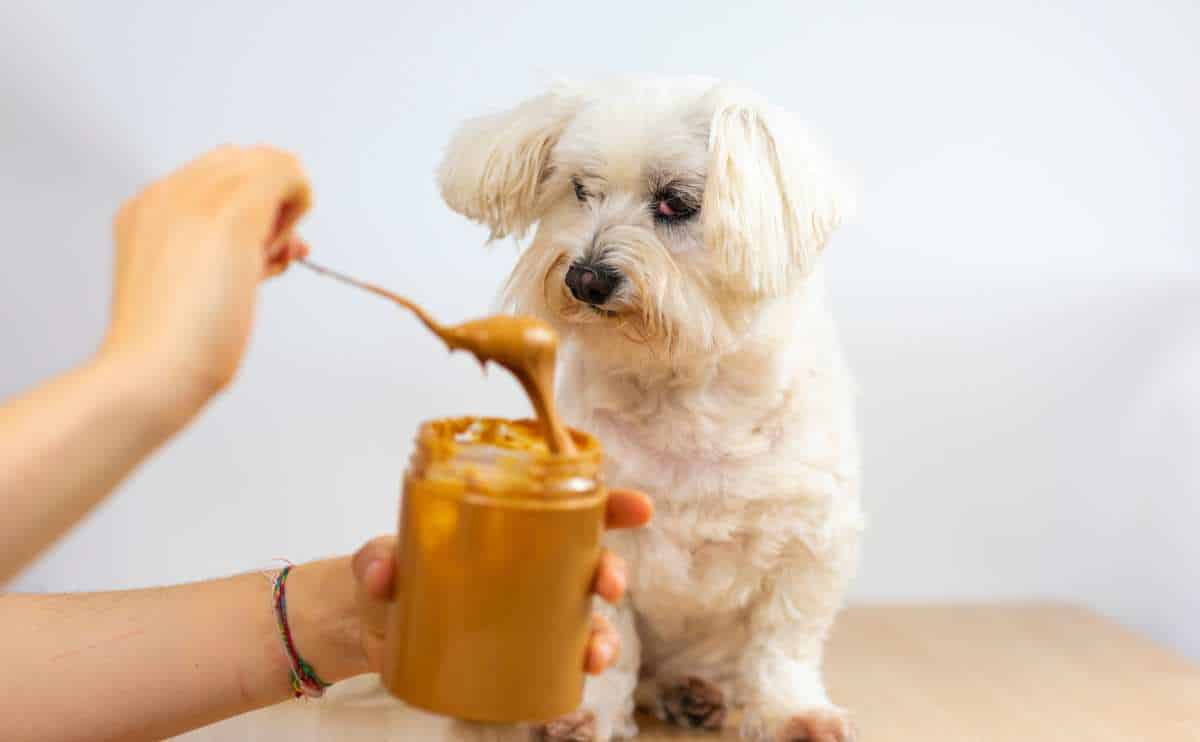
Can Dogs Eat Peanut Butter?
Is peanut butter safe for dogs? Yes, most dogs can eat peanut butter in moderation if it doesn’t contain xylitol. Xylitol is a sugar substitute used in sugar-free chewing gum, toothpaste, chewable vitamins, baked goods, and some human peanut butter brands. While safe for humans, xylitol is extremely toxic to dogs. See our reviews of the best peanut butter for dogs to learn about safe and healthy options as well as feeding guidelines.
Can Dogs Eat Salted Peanuts?
No, don’t share your salted peanuts with your pup. Too much dietary salt can cause health problems in dogs. In large quantities, salt can even be toxic for our furry friends.
Can Puppies Eat Peanuts?
Yes, puppies can eat plain peanuts following the same recommendations as above. But it’s important to make sure they’re small enough to avoid a choking hazard. For little ones, chop up peanuts into bite-sized pieces.
Healthy Treat Options For Your Pup
Because they’re so high in fat, peanuts aren’t the ideal treat to give your pup regularly. You have many healthier options. Consider cut-up carrots or blueberries (see which fruits are safe for dogs). You also have plenty of high-quality commercial doggie treats to choose from for a host of health needs and dietary preferences.
See our picks for the best low-calorie treats for weight control, hypoallergenic treats for pups with skin allergies, treats for diabetic pups, and CBD treats to help ease anxiety or joint pain. We’ve also chosen your best options for organic treats, vegan treats, and freeze-dried treats.
